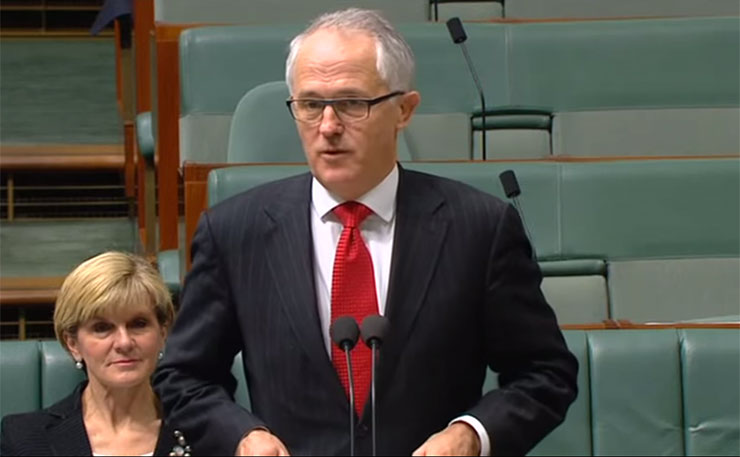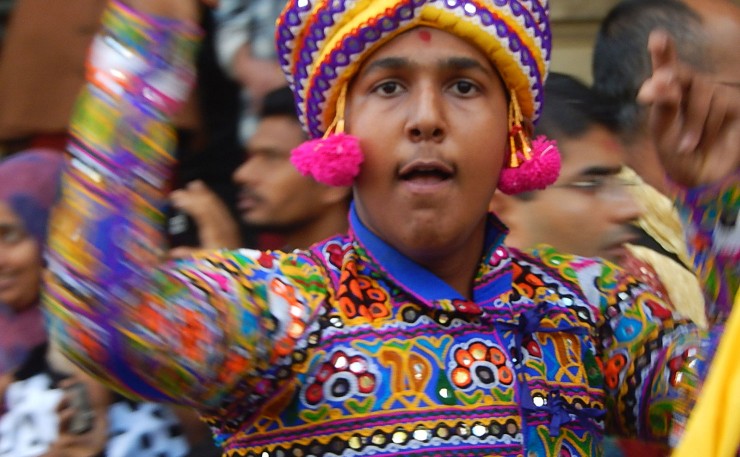Australia is one of the great multicultural nations, but it didn’t just happen. Neroli Colvin explains.
Ever since Australia opened its borders after the Second World War – and particularly from the 1970s on – there have been people wanting to close them.
The latest to go on record, in the wake of the horrific attacks in Paris on Friday, is the Nationals’ Andrew Fraser, state MP for Coffs Harbour.
“Message to Malcolm Turnbull: Australia does not need Middle Eastern refugees or Islamic boat people!” Fraser posted on Facebook on Saturday.
Malcolm Turnbull, meanwhile, had a message of his own.
“To the Australian people, I can say this: we are a strong nation, we are a united nation, we are the most successful multicultural nation in the world,” the Prime Minister told ABC1’s The Insiders program.
Few would disagree with him: on almost any criterion, Australia rates highly as a cohesive, low-conflict society.
That enviable status is no accident. The policy of multiculturalism, officially adopted in 1973, has played an undeniable role in helping migrants and refugees make new lives for themselves in this country.
Back in February 2011, then immigration minister Chris Bowen spoke at length about the “genius” of Australian multiculturalism as he launched the Gillard government’s The People of Australia policy.
Now a new multicultural policy is on the horizon, the Assistant Minister for Multicultural Affairs, Concetta Fierravanti-Wells, has revealed.
Speaking at the Federation of Ethnic Communities’ Councils of Australia national conference in Sydney earlier this month, Fierravanti-Wells said the government had been working with the Australian Multicultural Council to develop a new policy.
“We will shortly be releasing a draft multicultural policy for public comment,” she said.
“This will ensure that Australians have the opportunity to provide their views” on citizenship and other “important” issues.
Deputy Opposition leader Tanya Plibersek, addressing the same conference, said: “We didn’t just drift into our current success [as a multicultural society], and we can’t expect to just drift into future success.”
As we await the Turnbull government’s blueprint for Australia’s multicultural future, here are four thoughts – and hopes – regarding what it should contain.
Let’s remember that migration is not what it used to be.
When large numbers of refugees from Europe began coming to Australia after the Second World War, they had few options for maintaining contact with their homelands. Return trips were hugely expensive, as were phone calls; mail was slow and could be unreliable.
Becoming an Australian citizen, learning English and “fitting in” were the hallmarks of a successful transition. That’s no longer the case.
Today’s technology allows all of us, including migrants, to live in multiple worlds – physically, socially, culturally, emotionally.
Economic drivers have also promoted temporary migration – so that Australian citizenship is no longer always the goal, or even possible.
This is a significant change, and something we need to remember in developing social cohesion strategies.
The latest “Mapping Social Cohesion” report, published by Monash University last month, shows most Australians have a strong sense of belonging in Australia.
However, this belonging can’t be taken for granted; it needs to be carefully cultivated and maintained.
Let’s pay attention to language.
It used to be “new Australians”, “ethnics” and “NESBies” (people from non-English-speaking backgrounds); now we favour more inclusive terms such as “multicultural” and “CALD” (culturally and linguistically diverse).
But here’s the thing: we use the terms in the same way.

We talk about “our multicultural citizens” (meaning non-Anglo and non-Indigenous) and “the CALD community”.
In other words, it’s still “them” – the ones who are “different” – and “us” – the dinkum Aussies.
Meanwhile, the Department of Immigration and Citizenship (as it was under the Rudd/Gillard governments) has morphed into the Department of Immigration and Border Protection – the emphasis shifting from who we want to invite in to who we want to keep out.
We need to get our messaging straight.
Let’s shift our focus from “tolerance” and “celebrating” to “embracing” and “equity”.
Multiculturalism is “more than ethnic food festivals and parades”, Plibersek told the FECCA conference.
This may seem obvious, but it bears repeating.
Back in 2004, the then head of Britain’s Commission for Racial Equality, Trevor Phillips, wrote in a newspaper article: “I have nothing against cultural celebrations; but they do not make up for the scandal that more than half of Whitehall’s departments have no ethnic minority staff at senior level, or that British boardrooms hardly ever see a non-white face, or that in the forthcoming elections we are unlikely to see any real increase in minority representation.”
The same “scandals” exist, and persist, in Australia: people from non-European backgrounds are “barely there” in senior government positions, boardrooms and the judiciary, and are underrepresented in our media.
We’re a highly diverse nation, but not when it comes to positions of power and leadership.
We need to put equity back into the multicultural equation.
Let’s recognise multiculturalism as a continuing and essential project – one that needs to be supported by adequate funding, independent research, and better integration of federal, state and local programs and services.
We need better information about what works and in what contexts, and we need better ways of sharing this information.
And if we’re to figure out what works, we need comprehensive evaluation systems… not just knowing that Harmony Day was a hoot and the banh mi a hit.
By any standards, Australia “remains a stable and highly cohesive society”, Monash University’s Professor Andrew Markus writes in the latest Mapping Social Cohesion report.
Keeping it this way will take bipartisan commitment, broad consultation and sustained collaboration on policies and programs.
Donate To New Matilda
New Matilda is a small, independent media outlet. We survive through reader contributions, and never losing a lawsuit. If you got something from this article, giving something back helps us to continue speaking truth to power. Every little bit counts.





